#W.G. Grace
Text
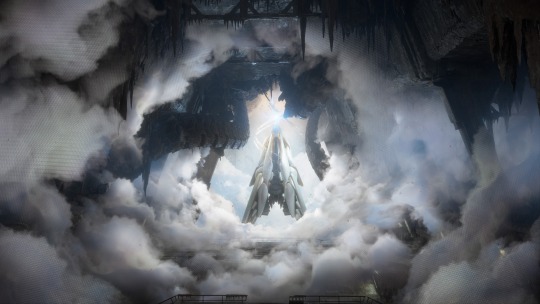
Oh! This reminds me of something! What the hell is it though? Ugh, this is gonna bug me.
[12 seconds later]
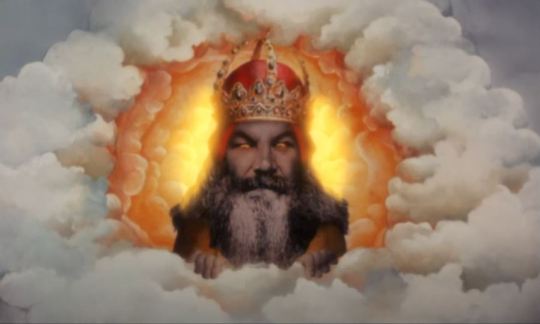
Oh yeah, that's it.
#hfw#horizon forbidden west#horizon burning shores#hfwbs#burning shores spoilers#hfw photomode#monty python and the holy grail#w.g. grace#horizon shitpost
34 notes
·
View notes
Text

a basic W G Grace timeline, cards by J. Baines and W.N. Sharpe, 1883 to 1899. Note: there are images not included here, such as two mostly white cards from c.1896, a blue and white card of Grace for Gloucestershire and a black and gold card of Grace for England, with "cricket caps and belts" advertising backs. Grace cards are about as rare as they come, in sports cards! Some of them are earlier than baseball cards, too!
0 notes
Text
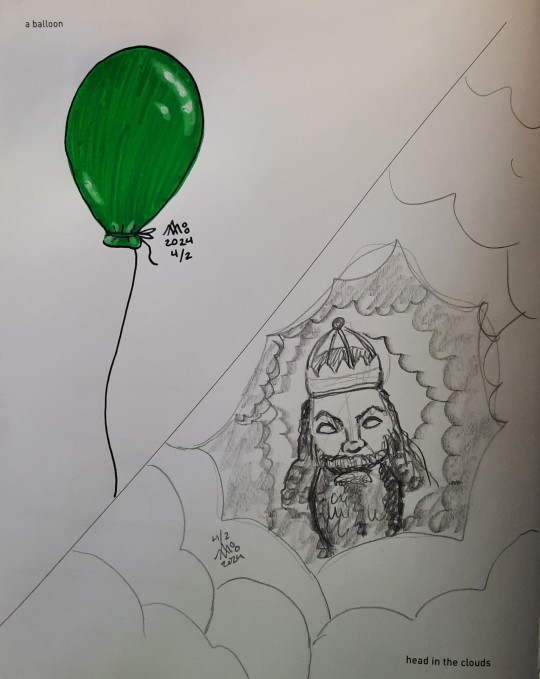
Two more entries from "Things to Draw" - a balloon in Posca pens (note to self - don't use Poscas in this book again, it's not a wet media paper) and God/W.G. Grace in pencil
2 notes
·
View notes
Note
Hoping this doesn't sound rude, but.....
......how much of a Monty Python fan would you say you are (going by this scale)?
Casual MP fan -> (i.e only watched the TV show and the films and some of the live shows, maybe has a bit of the merchandise, has some idea/knowledge of the extra lore of Pre and Post Monty Python era but not TOO much, remembers some of the most famous quotes)
|
| somewhere a mix
-> between
-> Casual &
| Middle
|
Middle MP fan -> (i.e watches the TV show, the movies AND all the live shows, owns most of the MP merchandise, has a good knowledge of the Pre and Post Monty Python lore/era and watches the Non-Monty Python stuff as well, remembers all of the quotes)
|
| somewhere a mix
-> between
-> Middle &
| Pythonist
|
Pythonist* -> (i.e watched the TV show, the movies, the live shows AND the documentaries, owns ALL of the merchandise, knows all the quotes verbatim and with perfection, the interviews, their knowledge of the Pre and Post Monty Python lore/era is as big as W.G Grace God from "Holy Grail")
*'Pythonist' is a term I used from a sketch from the satirical news sketch show "Not The Nine O'clock News" (which also has Rowan Atkinson), in which the sketch itself is a parody of the Life of Brian/Friday Evening, Saturday Morning debate in which the roles are reversed, where Rowan plays a priest character that's an obvious parody of Mervyn Stockwood, in he talking about his film "Life of Christ", in which his debater is calling him and his film "blasphemous" for making fun of their Lord and Saviour John Cleese. It's really funny, so go check it out on YouTube!
Not rude at all!!
I’d say I’m a Pythonist in Training (like an 8/10)
8 notes
·
View notes
Text
The Shade's Journal (Starman Omnibus 2)
(While taking pictures of the journal pages, I found out that my phone has the ability to extract text from photos, so I decided to post these in text form for those who might have trouble with reading the photos. Enjoy!)
From the Shade's Journal…
The problem with immortality is the memories.
Prolonged life means more events, which in turn means more recollections at a later date. And I have lived my life to the fullest. And there are so, so, so many events to recall.
Today there was nothing much occurring that I felt warranted inclusion in my journals. David Knight patrols the nighttime streets, and the city is Opal City. For this reason, with my book open on a blank white page, and my pen in my fingers, I feel compelled to write of the other times. Times past.
I remember London. Visiting it for the final time. Visiting Oscar too, at his Tite Street home. This was long before his fall from grace, thankfully. We ate a fine cream tea that afternoon, and I think this was not the first for Oscar, as his waistline was more than beginning to show. Not that it really mattered to me, I merely pause now to reflect.
Our time together was a delight. I sat and listened, mainly. Oscar's night before had been one of a fine port and rakishness, so he was slow to start with his wit. But, of course, he started eventually. And I listened and laughed as Oscar commented on "this" public figure or "that" bit of scandal. Indeed, that week there'd been a salacious new tale about Catherine Walters. "Skittles," as she was known, was one of London's more famous "grand horizon-tales." There had been talk of her and W.G. Grace, the famous cricket player. Oscar made a remark about "Dr. Grace getting a sticky wicket" that had me doubled over with laughter.
I'd just begin to realize, then, that perhaps, just perhaps, I was no longer going to age. This fact had crept up on me. It was with shock I realized that the week prior I'd turned sixty and yet still looked to be in my late thirties. And that day was when it really sank in. Oscar was beginning to show those signs of a misspent life that should have been mine also. Seeing the signs of wear and tear in my friend made me sad. And a little ashamed. Guilty.
Yes, looking back, perhaps that was why I never saw Oscar again. It was 1891, years after we'd last met in Opal City during his American tour. And years before his troubles with Queensbury and all the dreadfulness that followed. Poor Oscar, perhaps I should have been there for him in '95. But like many other friends, I was nowhere to be found.
Anyway, Oscar's evening was to be spent with Lord Alfred whom he'd recently met. Oscar was charmingly firm in telling me that I was not invited to accompany them.
And so we were alone that night, London and I.
My mood and the wind both had a sharp sting to them, and one or the other bid me to venture forth to Tiger Bay; down by the Thames where the air was foul and all good folk know never to go. But I am not, nor ever was, a good man. And so I went.
The opium dens and drinking clubs were full, with sailors, and doxies and Orientals. You could hear any language in the work. You could see and color skin too. London has always been a melting pot and on this night in Tiger Bay, the fire beneath that pot was burning fierce.
I walked into a deserted courtyard, on my way from one street to another, and there stumbled on a most singular occurrence; a large brown bear being clubbed to death by its owner. The beast was close to the end, from the many repeated blows his owner had given it with a sharp studded mallet. I inquired what terrible thing the beast had done, that it should be treated so, and the man replied that the bear was too old to perform anymore. The bear had been a street dancer and on weekends in Pitney Market and other parts, had made this fellow much coin. But now old, the bear was costing the owner more to feed than the animal brought in, and so the man had resolved to kill the beast and sell its flesh to the slaughterhouses.
Something about the scenario struck me as ludicrous. The man was small and weak and yet had somehow overcome this huge animal and with no regard or affection was now ending its existence merely for aging. I think my guilt over Oscar's aging might still have been affecting me. Perhaps.
Whatever. I killed the man.
The reason I'd gone to Tiger Bay was that this had been where I was born. "I" being the Shade, of course. I had even then ceased to think of my "human" existence, before my transformation, as living. I suppose by returning to my roots, I'd thought to gain some inner peace. To this day the horror I witnessed during my creation and the countless deaths that occurred then still haunt me. Back in 1891, they were vivid and terrible, and I'd have done all and anything to end them.
But going back never allows one to go forward. That's a myth fashioned by poets. And I am no poet. All I got from my journey was sadness — the kind that grabs and clings and threatens to drag you down to the shadows of a dark place where even I, who know much of dark places, am fearful to go.
It was as I turned back towards the city that I saw her, the final nail in the coffin that was my waning affection for London. The Victoria Match Factory employed over a thousand girls and women. The work consisted of tipping match sticks into phosphorus, which, after prolonged contact, caused the bones of the workers doing this to decay. The sight of beggar girls without jaws or fingers was a common one. "Phos girls," as they were known. And it was now that one such poor wretch approached me. The lack of a jaw prevented her from speaking, and instead she mewed plaintively, like a kitten. I had seen such girls before. I had seen them. And I had thought my heart hardened by it, that sight, and everything else.
Yet that night a tear fell from my cheek.
I gave the girl a guinea. More money than she'd ever seen, to be sure.
And I turned and walked from her and from London and from England. Never to return. Opal City had been my residence then, a place where I lived and went forth, visiting London and Paris and Gotham City. But from that moment on, the Opal truly became my home. My place in the world.
★★★★★★
It's been an hour since I wrote those last words. In that time, much has happened. I've enjoyed a rather good French wine; this, the perfect complement to my dinner of beef and oyster pie. Also, some lucky citizen of Opal City won seven million dollars in the lottery. And finally...David Knight, this city's current champion, has been less than lucky.
David Knight was murdered twenty minutes gone.
The reports are still vague, definite answers few, but it does indeed appear that David Knight has died. There's nothing I can do about it, of course. Until I know more, it would be unwise of me to attempt anything. And of course, there's the distinct possibility that I won't want to attempt anything, anyway. So for now, I listen to the news reports, and I think, and of course, in my present mood...
...I remember.
Few recall the Starman of the 1950s, but I do. He flew the night skies over Opal for a year and a week, and then died a brave death. Brave and foolish. Ted Knight was still intent on his research. He'd just developed the prototype Cosmic Rod, and I think his mind was wrapped up in furthering that work. He was recovering physically too, from injuries sustained in Washington. Indeed, thinking about it, he looked the worse from that for quite some time. And then he married also; and women will ever be the death of men's endeavors, so who can blame Knight for his time away from the cape and costume.
I've many theories on the identity of the champion who arose to take Ted's place in those days when the Starman of lore wasn't there for his city. Alas, the ultimate answer to that question is still one that eludes me. Perhaps Knight knows. Perhaps one day I'll get the opportunity to ask him. However, it was evident that the 1950s Starman had different powers and a different costume and bore no real relationship to the one before or any since. A riddle, surely. A puzzle. Some love such twisted passageways, but I detest them.
I'll know the truth, the whole truth, one day. I will.
But for now I content myself merely to remember.
He's no Brian Savage. That's for sure.
It is November 20th, 1939, and Opal City has begun to take an unpleasant turn. Crime appears to be on the increase: petty theft, murder — the full catalogue. It has been my observation that the mood of the country, and the actions that mood dictates, both tend to veer down a new path with a new decade. It appears my city has the jump on that, if that is the case, for after the relatively placid '30s, this new time we enter seems overly predatory by even the most offhand of comparisons.
And worse, we see the advent of the "superbeing." A few. But I have the distinct fear that these few are the beginnings of a larger trend. Another example of 1940 trickling in early. The man of sleep, the man of the hour, the man of speed, and the man of green have already made their presence known, the last two only in recent weeks. There are a few others, also. There's a shiny one and one who glides on the wind, too, I think. And of course not everyone lucky enough to be gifted with powers has an altruistic soul. There are villains, too. Super-powered criminals. I suppose with my thefts and my transgressions I might even be seen as one by society, although I fail to agree with that perception and think little of society's stifled mores to begin with.
Anyway, the point is that I'd hoped Opal might avoid the empowered champion. I fear that such a figure in the city might spur villainy rather than deter it. At least that is a feeling that crumbles within me.
Nevertheless such a hero has appeared. Starman, he calls himself. And a more fumbling, bumbling fool I've yet to witness.
He's been successful in his first few forays, true, but with a need for such luck and with a lack of any skill, grace or foresight that I would find truly comedic...in a darkly French kind of way...if it were not my city that he's chosen to romp around in. He has a rod, which he holds in his hand. It glows bright. It fires rays. He can fly with its aid, too, from the look of things. I'll leave the symbolic significance of this weapon to men like the late Dr. Freud. All I know is that with such a weapon, a man might be the country's greatest champion. Starman, however, seems lucky to hold his own in encounters with the pettiest of petty criminals.
Even making allowances for this fellow's inexperience, surely, oh surely he could do better than he has. Surely. So far no one has lost his life cavorting about in costumes and righting wrongs as they do, but I fear this man of the stars in his green and red will be the first. Indeed I fear that greatly. I know I said I wanted no super-hero in Opal City, true. But now a hero has elected to come forward. If he feels one tenth what I feel for this place, then I am loath to see him dead for that love.
We shall see. We shall see if Starman is champion…
...or chowder.
★★★★★★
The fire burned for 37 hours. So fierce was the blaze that it took a full hour until the firemen could get close enough to seriously even begin to fight it. There was a beauty to the blaze. A stunning beauty, especially as dusk fell and the pyre flared merrily on. Had it been any other place, I would have adjourned to a nearby café or bar close to the spectacle, ordered wine and perhaps some finger foods, and then watched the events and enjoyed the aesthetic of the flame for many happy hours.
But this wasn't any other town; it was mine.
It's October 13th, and my opinion may have changed somewhat in the time since I last pondered the merits of Opal's champion.
Since then he's grown. I feel I'm perhaps a short while away from discovering the man's real identity, but for now that knowledge proves yet elusive. Still, the fellow doesn't even wear a mask, for heaven's sake, so how hard could it really be? It's been time that's impeded me more than anything.
I've been away for a month or two. There were trinkets and riches I felt were wasted in the vaults and museums they were in, and much better used and loved in my possession, or in the hands of those private and wealthy who'd pay me for the acquisition of same. And then there is The Flash. Don't even let me start on The Flash and his city.
I've hated the idle rich. My betters...the upper class of England. One of the things I left my country of birth for was to escape the snobbery and stupidity of the so-called upper class. And I've long felt their obsession with chasing a poor scared fox, until the point when their hounds can tear the creature apart, to be flawless as the epitome of barbarism.
With The Flash, however, I perhaps begin to see the thrill of a blood sport. I don't know what it is. I'm drawn to him...to the thrill of the joust with this silly speeding character.
But here in Opal, things had grown...grim in those months. And they'd be grimmer still if not for Starman. Sure enough, within three months of Starman's stellar debut, villainy of extraordinary nature came to the city also. One such character is The Mist. The man is not new to me, or to the headlines. I think I recall him fighting Sandman many years prior and with powers of a far more rudimentary nature. The Mist and the Starman have fought three times now, each battle more violent and desperate than the last; yet Starman has managed to persevere and to ultimately emerge the winner each of those times. I'm piecing together that Starman must be a man of science, too, for twice he foiled The Mist through his knowledge of such secrets...beating The Mist each time, I think, as much to the villain's astonishment as to mine.
And then there's Johnny Sorrow, who attempted to take control of this metropolis lock and stock. The battles waged by hero and villain combine into something of an epic. Each of Sorrow's apparent defeats was actually a piece of a master plan where the end-mate would have resulted in the far greater victory. In fact, I'm envious that I failed to dream up such a scheme myself — though perhaps that says something about my character, and the lack there of anything truly malignant.
The new Gladstone Towers, the biggest, brightest building to grace the Opal skyline, was being opened this week. Every city dignitary was there, plus Carole Lombard, the Ritz Brothers, and Benny Goodman, who's all been flown in for the event.
All Johnny Sorrow's defeats were unveiled as steps to his ultimate victory at the point in the evening when Sorrow's minions attacked the proceedings. Whether the burning of the Gladstone was intended or not is a mystery that Sorrow's demise means will remain unsolved. But burn the place he did, and I said before, the sight of it was truly breathtaking.
There were many inside the building at the time, and as the first waves of fire swept over everything, these unfortunates seemed doomed. The city officials I could not have cared less about. The Ritz Brothers were chimpanzees in suits as far as I'm concerned. And Benny Goodman is Benny Goodman. However, I do enjoy the talents of Miss Lombard, and so would have been loath to learn that she had perished in such a terrible manner.
Yet fire is not my friend, nor that of the creatures I create from the shadows, so I was powerless to do anything but sit there and await the bad news.
The explosions began as dusk became night, fierce percussions that the firefighters feared were the beginning of the building falling in on itself.
Then it became obvious that these blasts were being fired by something from within the structure, outward — to what end, no one knew. Some feared it another part of Sorrow's scheme. I knew better than to even try guessing.
The wall to the east finally fragmented outward, and through this chasm, running fast and scared from the flame that fell around them, those trapped inside the building all escaped with their lives.
It was Lombard, actually, who choked an answer through the soot and ash in her lungs, when asked how their escape happened.
"Starman," she said, before fainting away, though where the champion was remained a mystery as he failed to emerge with the others.
Another hour passed. The building now did begin collapsing. The structure groaned and then cried out in pain at what was happening to it. Huge angry barks emanated from within — a dog, bellowing his dissent at the flames that consumed him, or so it sounded to my ears.
And then the building fell.
But as the falling happened, something else did also. Something else.
There was another explosive blast, fired upward at an angle from one of the central tower's upper floors. And as the Gladstone toppled down…
So Starman arose. He flew up out of the fire, truly this time seeming like the gaudy god that many heroes try so desperately to appear as. And at that moment, as Starman appeared and rose out from the flames, he made it seem effortless.
No one ever saw him enter this mêlée. But everyone saw him leave.
If any had doubts as to the veracity of Opal City's Champion up to that moment, those doubts now faded.
In everyone but me.
Something was still missing, something Brian Savage had that this new hero lacks. I think I know, too. Starman is a hero without question, but I feel perhaps he'd be just as effective in Midway or Ivy Town or anywhere. Savage loved this city. He wanted it safe and well and spent his time here trying to bring about that safety and well-being and maintain it. As he died, Savage said that he'd return one day. Perhaps he will. Perhaps Opal City will one day know such a champion.
And Starman is still a hero. That shouldn't be forgotten, I suppose. He's brave. He's powerful. He's what this city wants at the moment, if not what it needs. And he's here.
As I wrote in an earlier entry, he's no Brian Savage.
But he'll do until something better comes along.
There is a dreary sigh to the light that hangs over Opal this evening.
I know not why this is, or if indeed what I write is the truth. Perhaps it is merely my mood that makes the night appear thus. I looked out of my window, earlier today, and found a blue bird lying dead upon the ledge there. At first, it seemed to be sleeping; its body still in that gentle soft way that babies and small things can have in slumber. And then a moment more, and the body is still for too long and suddenly a pallor falls upon it in the eyes of the beholder. And the thing is dead and obviously so, and there's nothing God or the maddest of science can do about it.
I used to hate animals. The only good that an animal could do when I was alive was to die so it could be eaten. Cows, hedgehogs, sheep, horses, and chickens were fine things when placed upon the plate, but when walking around they were something stinking to be avoided. Even feared. Dogs, inedible and foul, especially, were beasts to be shunned. Cats were less bothersome to me but equally detestable. I remember learning in my history books of the great Cat Massacre in Paris, an event that predated the French Revolution by some ten years. I recall suggesting to Charles that he should mention this in Cities, and that together we might encourage the people to duplicate that carnage on the felines in London of our time.
I don't know when I changed. Am I evil? I question this assumption made by the Boy Scout Barrys and Jays that I am. They have no sense of the world in its vast array of shades (excuse the pun). To them, anyone who didn't act as a white American of the 1940s and '50s acted was against that society and so must be evil. They decided I was evil when I began my thefts. First Garrick and then Barry much later. I was never that sure of my own fiendishness, but I said to myself...to Barry and Jay…
"All right, if you say I am, then I am. I'll be the Indian to your cowboy. Whatever you want."
Though I recall one encounter I had with another hero, the Tarantula, Jonathan Law. He was writing a book on us of the superpowers, and with his guard lowered and an olive branch extended high, he bade me meet him and talk.
We talked.
Jonathan Law was an obsessed fellow. His color was bad. His girlfriend had left him, I believe. He was letting himself go. Something to that end, and it seemed his book was all that maintained his sanity then.
We talked.
And it was he who waxed on about amorality. I was...am neither good nor bad. I am merely above it. Beyond the mortal laws. That sounds smug. Perhaps it sounds like an excuse. I'm sure half the maniacs and rogues captured say they are above the law.
Does my immortality make me better than those mortals, long dead, whose tenets we as a society abide by? I raise the question now as Jonathan Law did then. Rhetorically, I'm not sure I know the answer. And I'm not sure I should dwell on the matter too long or in too much depth either. Be as I am. Live as I live. And if I ever meet God a second time, let my judgment be what it is also.
Now, as an undying being, I have caused the deaths of many men. Have I guilt of this? No. Never. Some of them — most I'd dare say — were evil and deserved their fates. Some didn't. Some were innocents. Night watchmen. Police. A baker of erotic gateaux. An archaeologist who tried to beat me to a pharaoh's treasure in 1905. And of course there was my murder of Louis B. Mayer, suppressed by Hollywood and the Los Angeles Police, but long overdue, nonetheless. Revenge, finally, for what he did to my old and good friend John Gilbert.
At any rate, I have killed, and not once felt a flicker of remorse. Yet I have not killed an animal in a century. When I was mortal I hated them, but something about me now, how I have changed from the pious, simple soul of my mortality to the creature I am today, has had an inverse effect on my feelings for those who go upon four legs. There are faiths in the East that claim all beasts are lower than man because they turn their backs on God. Having met God once already, I would dispute that.
Furthermore, the animal I once hated most, I now love more than any other. Dogs. I believe...truly believe...that dogs are God's way of telling us that he...she...it...does indeed exist.
For although something as flawed as evolution could create something equally flawed as mankind, only a higher power could conceive something as pure and perfect as a dog.
There is a myth of old that when man and beast were first upon this world, they were as one. Then it became apparent that man was not as other animals, and the beasts turned against him. A line was drawn, and all the animals of the world stood on one side, with man on the other.
"You are different from us and can never be with us," the king of the animals said. "You can never be as we are. And no animal will side with you, for if it does, it will be forever cast from the other beasts and its lot shall be the lot of man. He must stay with man and be man's friend and never truly be ally to his fellow animals again."
There was silence among the beasts as the weight of this decree came to rest upon them. A fate such as this would be fearful, not one that any beast would dare bring upon itself. The silence continued for a moment more; then one animal stepped forward and crossed the line to stand with man — and has, since that day, been at man's side.
It was the dog; and no one who has ever known a dog's love will tell you that the myth did not happen once long ago.
I would have a dog myself, but they live so short a time, and my existence is eternal. The thought of having that purity of friendship for such a whisper of time is too dark even for me. Even for me. Kipling once wrote something along the lines that to have a dog is to know that one day you will cry. One day your friend will be gone and you will be left with a void. I couldn't bear such a void. I can't remember what it is like to weep, and I'm loath to find out at so late a stage in the game.
No, let others have the love and the tears. And I will adore dogs from afar. And woe to anyone I see harm one. I have used the shadow wraiths to inflict pain so prolonged and inspired and agonizingly savage that the inquisitors of olden Spain would blanch and gasp and envy my art. Yet whatever pain I have inflicted will be as feather pillows compared to what I'll do to those I see harming a dog.
And this brings me back to the bluebird on the window sill. It wasn't a dog, but it was a dead animal, and it saddened me in some way that I have yet to fully comprehend.
And so the day seems drawn and tired as it wanes to a lackluster nighttime.
Anyway, Jack, if you've read this and feel perhaps that it's a meandering trail to nowhere, then I agree wholeheartedly. But I didn't say that my journals would be a litany of amazing incidents, did I? Musings are musings, some thoughts grandiose and others not.
Here!
...If you want an event to note, I shall relate the time I undertook and investigation for Howard Hughes. It began in Hollywood in 1943. I'd recently returned from London where I fought the good fight with Captain X, a young American flier. Back in Opal I was immediately confronted by five of Hughes' men, who attempted to abduct me. Unfortunately they were as bad at explaining their actions as I was good at making an immediate and utterly erroneous decision. Three of them died as a result before a fourth poor maimed fellow could explain that Hughes simply had need of me and that he meant no harm. In fact he'd pay me well for my time and trouble, and it was this that bade me go with them to the smog and palm trees and Pacific waves.
Apparently it had begun for Hughes when a griffin (yes, the mythical beast) had exploded into his office and attempted to devour him. A stenographer Hughes was enjoying the favors of ended up being the meal instead that afternoon; nevertheless the incident was unsettling enough that even someone as singular as Hughes was a tad rattled by it.
A few days later another attempt was made on Hughes. This time a gigantic white rabbit leaped at Hughes's plane as he attempted a test flight. Hughes managed to veer away and miss the beast, but not before noting that the monstrous animal had an equally gigantic watch secured around its neck by a chain.
Curiousier and curiousier, I hear you say.
Indeed I said the same thing many times myself, as I began my investigation. When I would witness a gun battle between Mickey Cohen and a Mad Hatter, and I would protect Ava Gardner from two psychopathic twin brothers…
★★★★★★
"Why the long face, Mr. Black?"
It was Spencer Kilne who said this, as I passed him on that winter's morn. We were on Dart Street, a narrow alley that would be brazen and bold to dare even call itself an avenue. Yet at some point in the past, perhaps a drunken Christmas party in the city planner's office, some clever fellow had decided Dart Street was a street. And there you are. There I was, anyway. It was 1941.
"Long face? I wasn't sure I had one," I replied, with a flutter of fingertips around my chin. "At least in terms of my expression. If you're referring to the shape of my face, well, I have little control over such matters."
I smiled then, though I didn't care a great deal for Kilne. His breath had an odor. An odd odor is the only way I can describe it. Like no food I can think of. Indeed, like no aroma I have ever encountered. This smell was nonetheless unpleasant to be near to. Especially on narrow little Dart Street. Especially before my morning coffee in the Parisian lanes that were my destination. But like a cuckold or someone with bad barbering, those with odorous breath are usually the last to know it. Spencer had me and he had no intention that this should be a glancing exchange.
"You look troubled was all I meant," Spencer said, unfortunately drawing closer as he spoke.
"I'm not long back to the city. I'm intent on making friends with it again. My thoughts were deep ones." I had him there, for Spencer Kilne and deep thoughts were strangers.
"But you have money." He said this as if having money somehow absolved people from thinking — though that had certainly been the case for Kilne, whose family fortune made him one of the names foremost on Opal City's social register.
His family and I had a few ongoing business dealings, which had of late been turned over to young Mr. Kilne as an attempt by his parents to give the idiot something with which to bide his time. Up until this day his finest achievement had been the "nudge plunge" with Mimzi Gadston — she, the idiot seed from another of Opal's finest folds.
The pair of them had leapt into the waters of Seven Colors at the annual regatta ball hosted by the Chumleys (another wealthy Opal family). And wearing nothing but a single champagne bottle between them, which the dauntless duo intended to open and drink when in the water, they did indeed strike a bold statement for fashion. The onlookers had cheered, despite the pasty ashen pallor and droop of both Spencer's belly and Mimzi's buttocks.
"Oh, how madcap are they," the spectators had cried. "What sports." "Crazy kids." "It has to be in all the papers, haha."
Indeed it was, though not just within the fawning society pages. For the dauntless ones had failed to take into account a number of factors. Firstly, that it was autumn, and Seven Colors's nighttime waters were close to freezing. Secondly, that the area where the regatta was held was known for its riptides. Thirdly, that Mimzi could possibly have done a passable doggy-paddle at the municipal baths, but she was certainly far from giving Esther Williams cause for concern. And lastly, that a champagne bottle is a heavy weight which a flailing Spencer managed to knock himself silly with, as he tried to keep Mimzi above the waves.
The river police were called, and all seemed to sort itself out — apart from Mimzi's dalliance with one of the constables, this coming to light weeks later and prompting the much enamored Oatsie Van Kleete, yet another rich young thing, to climb to the top of the Chandler Building, with a revolver and some brandy, and attempt to blow his brains out. He missed, of course. But the poor dear did complain of a ringing sound in his right ear for weeks afterward.
Anyway, Spencer stood before me now, intent on passing the time, even though with my shifting feet and offhandedness, I tried to make it clear I had no such aspiration.
"I know a way to cheer you up," he said, apparently not having heard, or having already forgotten, that I said I wasn't in the least unhappy. "Cards."
"Cards?" I replied.
"A little rummy."
"No, not this early. I have a coffee house I visit at this time. By now my special blend is no doubt simmering away and the store's owner is wondering where I am."
Have you ever had those times when you wish words were cheap beads on a broken bracelet, so as they fell, you had at least a slim chance of snatching them back to you? With words, once spoken they're said, and the only thing left was the sinking feeling in my stomach as Spencer's eyes lit up. Apparently I had said a word he understood.
"Coffee?"
"Yes."
"Coffee, coffee, coffee." Spencer said this over and over as if memorizing it to repeat at a later date. "We shall coffee together, you and I, Mr. Black. It is a cold time of year and we two shall coffee until our cheeks and our hearts are rosy."
It was greed at that moment that saved Spencer's life, for as I said I did business through him, with his family's financial establishment. Spencer's idiocy in this arena meant that I made far more now from the proceedings than I had ever done when his father, a far more serious-minded chap, had been my jousting partner in commerce; otherwise, I fear to imagine what might have occurred. Murder is murder, I agree. But damn it, coffee is coffee, and in my court, ruining a good cup of it with idle chatter should be punishable by death. Am I wrong? Am I overly hard? Perhaps.
But today, Spencer would be spared, despite the fact that Dart Street was deserted. I sighed and began to move with him towards the poor unsuspecting François and his glorious beans when…
...I heard the voice of the man I would learn to call Sam Mild.
"We've been looking for you, Black. You're coming with us."
Spencer and I turned toward Mild's voice and were confronted by the sight of five men. All were smartly suited, yet none were handsome...except perhaps Mild himself, who had the rugged quality some women find appealing. They all had shined shoes. They all wore fedoras, in shades ranging from dark gray to dark brown. And they all had revolvers. Shiny ones. New ones.
I arched an eyebrow as I beheld them. Spencer made a noise like a small child being told he's going to be locked in a dark cellar.
"And who might you be?" I asked calmly.
"Never mind that. Get in the car," Mild said, jerking his head to the street behind him, where indeed a sixth man stood at the end of Dart by the open door of a polished black Ford.
It was then that Spencer fell to his knees, his face now having the long expression. "Don't hurt us! Kidnappers! Murderers! I have money! Don't kill us!"
I'd be lying if I didn't admit to finding Kilne's overt cowardice somewhat disgusting. Mild, too, looked down at one of Opal's finest sons with a sneer.
"We don't want you. Shut your yap."
Another of Mild's men stepped forward, dragging Kilne to his feet, gave him a savage blow. How low was the blow, you might ask? As low a blow as you can get.
I wanted to laugh. Kilne's face went from red to blue to green in so short a space of time. His lips were pursed like he had a belch so savory, he was attempting to retain it. His eyes watered immediately. Finally, he murmured a strained, high-pitched buzz. I have encountered men of all races. I have encountered demons. I have encountered mythical beasts that mankind no longer thinks exists, but never have I heard anything make the noise that Spencer did, on that winter's morn in Dart Street. He sank to the ground and the same fellow who punched him then coshed Spencer once, knocking him senseless.
The five suits then advanced on me. I smiled as I sometimes do at times like this. And the shadow things came.
Two of the men were lifted aloft by my dark helpers. One was torn apart and the other beheaded.
Mild, lithe and quick, eluded one wraith, diving low and rolling to the side.
"Don't waste bullets. Shooting them's useless," he yelled while dodging a second wraith, but in the process hitting his arm hard on a wall. I heard a snap.
I then heard a louder snap as another of Mild's men, hoisted high, had his back broken before being thrown aside.
Mild had finally been snared, by this point, and was being carried high. Despite this, his voice remained calm. "We're not out to hurt you, Black. We need your help. My employer needs your help."
With a flick of my hand, the wraiths vanished. Mild fell to the ground. The last of the five suits, whom a shadow thing had been throttling, collapsed too, holding his throat as he gulped down air.
"Well, why didn't you say so?" I said, advancing to Mild and helping him to his feet.
He told me his name, wincing slightly, as he nursed a broken left forearm.
"Well, Mr. Mild, I fear you have yet to learn that a little civility can go a long way," I responded. "Now, what is this about? Who is your employer? Why does he need me? And for that matter, how do you know so much about me that you knew your bullets would be useless against my shadow wraiths?"
"I'm paid a lot by my boss. I get them by doing my homework." Mild walked over to the man whom my wraiths had broken the back of. Crouching slightly, Mild placed the gun to the man's temple. The man groaned and closed his eyes.
"Sorry, Eddie," Mild whispered as he pulled back his gun's hammer. "You know how we do things."
"Yeah, I know," the wounded fellow whispered back. "See you, Sam."
Mild shot him.
He then turned away, with a coolness that impressed even me. It was as if he'd just gotten the mail, or swept a cobweb from the corners of his kitchen.
"Rules. The boss likes things done just so. Anyway, what were you asking? Oh yeah, there was this guy in St. Paul. Hubert Mason. A nutbox character. He had the crazy notion about you and the new breed of super-heroes and villains that's beginning to appear around the country. Flash and Human Bomb and Mr. Terrific. You know? Mason thought you were all a sign that the devil is taking hold of America. He thought you were all Satan's agents."
"Mr. Mason could be right," I said with a smile.
"Yeah, from the look of what you just did, he might indeed. But that's none of my business. My business was the information Mason had compiled on you. All of you. He intended to travel from state to state killing the lot of you. He'd killed a hero called the Clock already, when I caught up with him. His next target was to have been the Whip."
I smiled again. Mild did too. We broke out laughing together. "Yeah," Mild continued, "I guess he believed in starting small and working his way up to the big guys. Anyway, his true talent was information gathering. Don't ask me how he found out everything he did about you, but he knew a lot. That was how I learned bullets would be useless against your shadow demons. That was how I knew nothing can beat them."
"And where's this Mason chap now?"
"He fell asleep with a lit cigarette. Burned to death." Mild smiled again, wincing as he did, from the broken arm. "'Course he didn't smoke until I made him."
"And your employer?"
"He's a big cheese in Hollywood. His life's in danger. Attacks. Supernatural creatures. Bizarre craziness. He needs you to sort it out. He'll pay well."
"Pay? Mild, do you realize that had you taken the trouble of a few words of explanation like this, I might have spared your men's lives."
Mild shrugged. "My boss is Howard Hughes."
"Howard Hughes, indeed. Hmmm. Well, I've never been to Hollywood, and I've always wanted to."
Mild nodded to his one surviving aide. "Dan, get the boys' wallets. We don't want them identified."
"What about the stuffed shirt?" Dan asked this, walking over to Spencer and nudging him with his toe.
Mild looked at me. His expression was sheepish. "Mr. Hughes doesn't want any witnesses."
Now it was my turn to shrug. "And I assume Mr. Hughes usually gets what he wants," I said, trying to look upset by this development.
Mild and I walked away, leaving Dan to kneel, gun drawn, by the fallen Spencer Kilne. We were already in the Ford as Dan's gunshot sounded. He came running out of Dart Street, a moment later, some of Spencer's blood wet on his pants leg, and hopped into the car.
"Is it warm in Los Angeles at this time of year?" I asked.
"Warmer than here," Mild replied.
"Good," I said, settling back. "Then I shall enjoy the weather if nothing else."
TO BE CONTINUED...
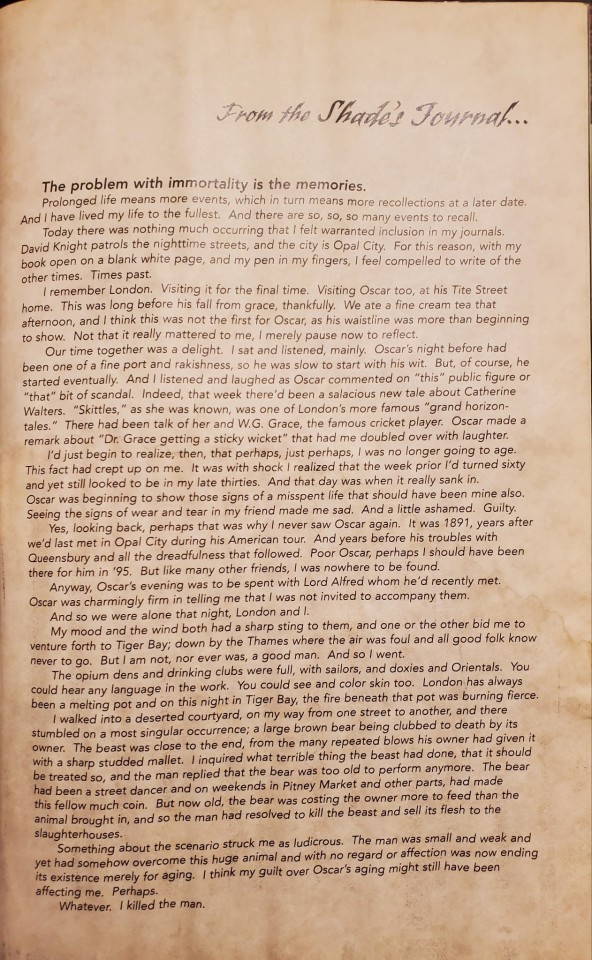
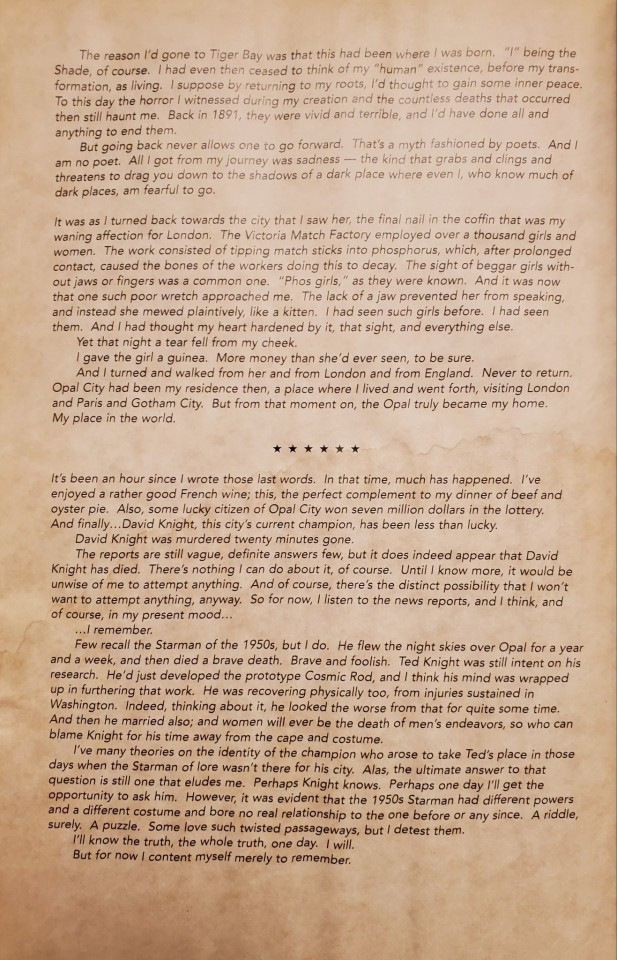
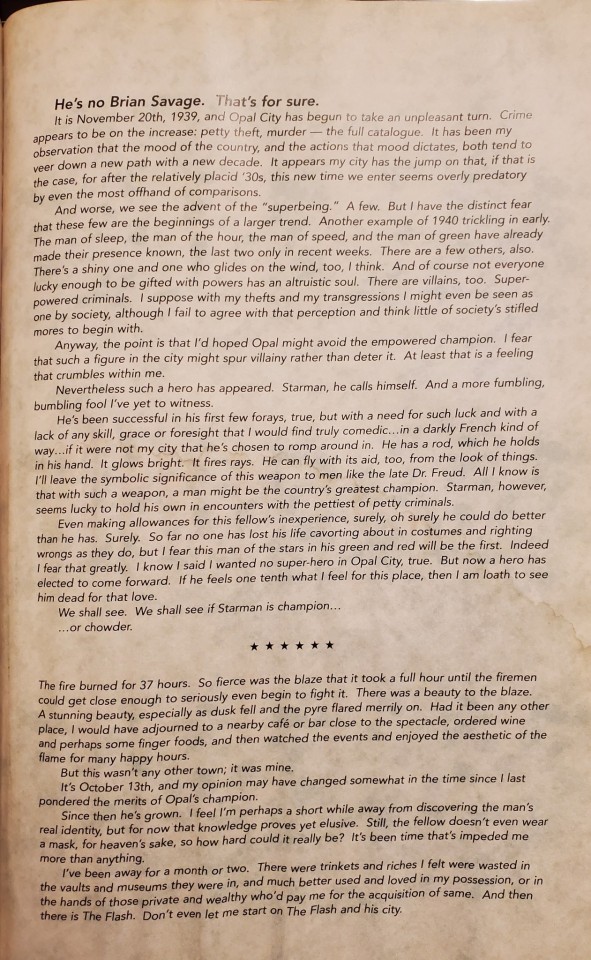
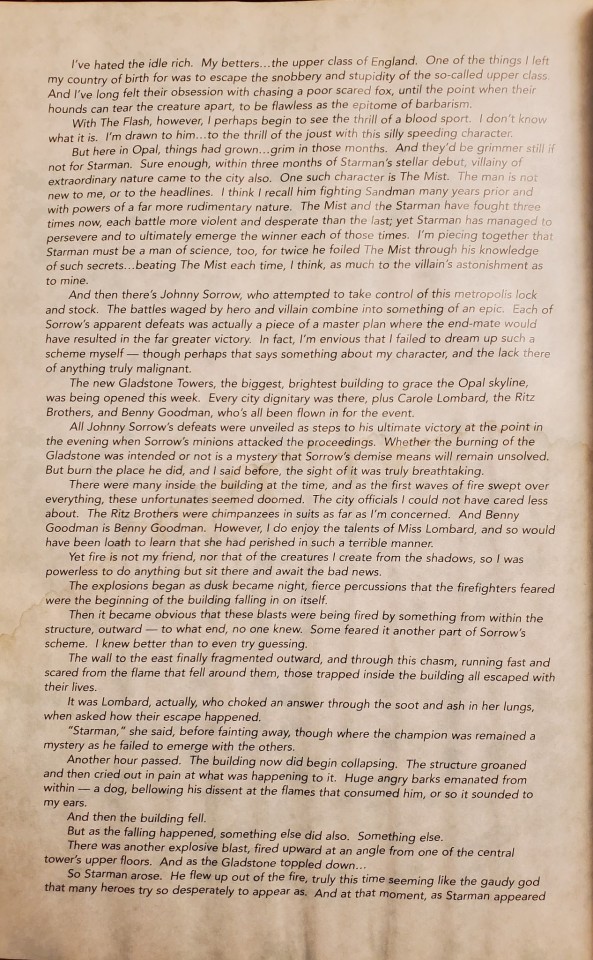
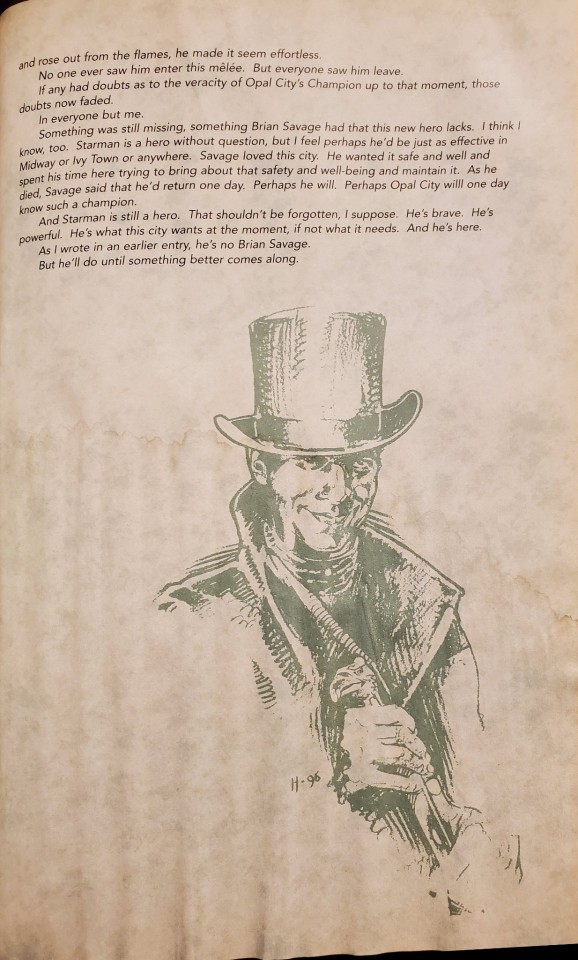
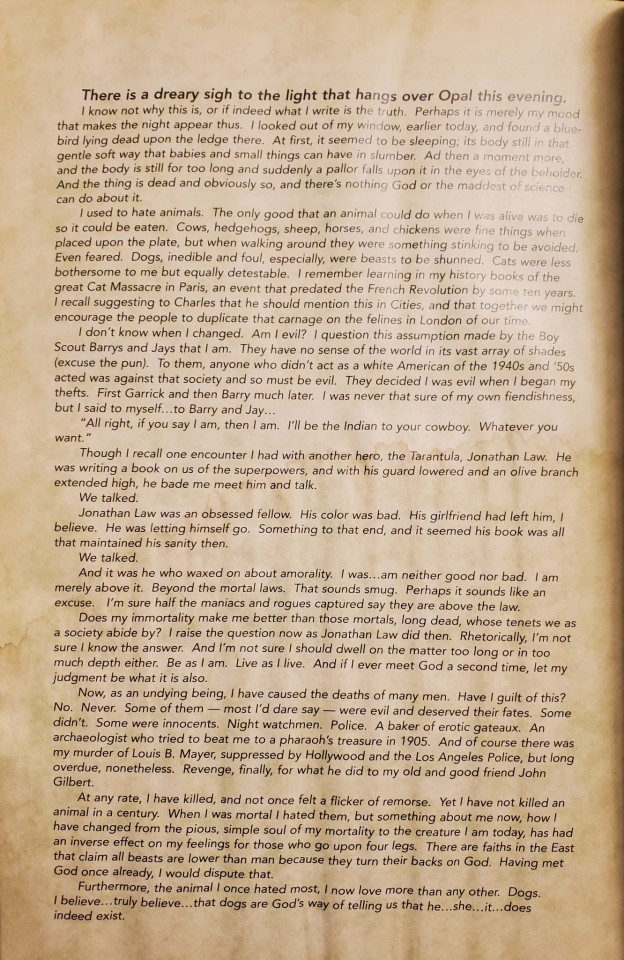
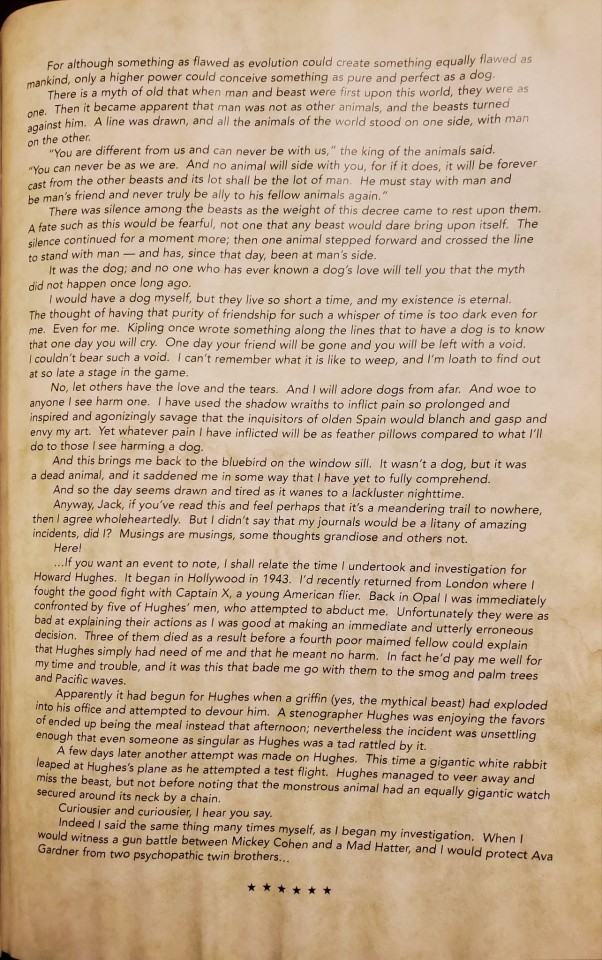
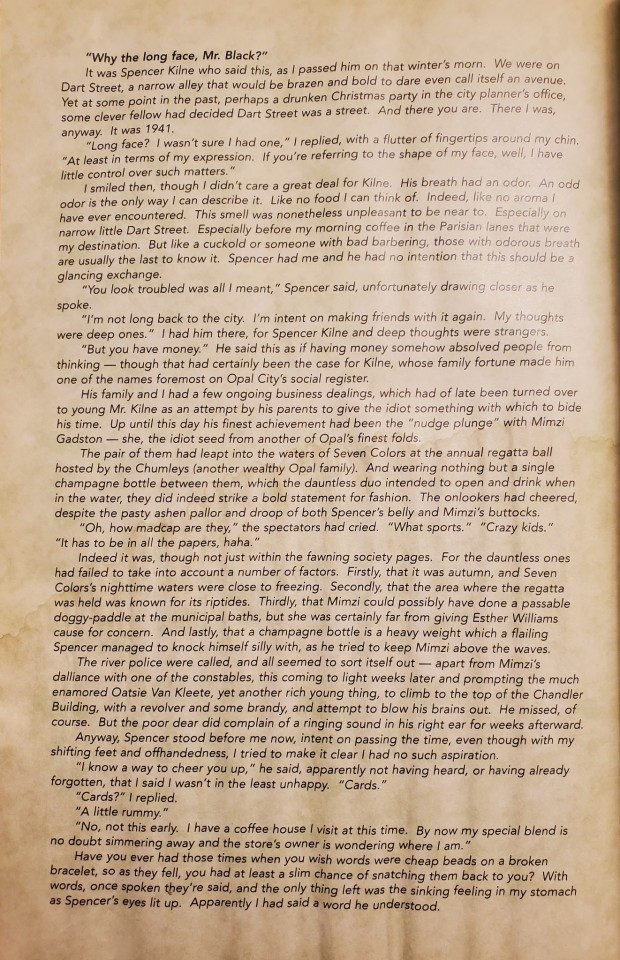
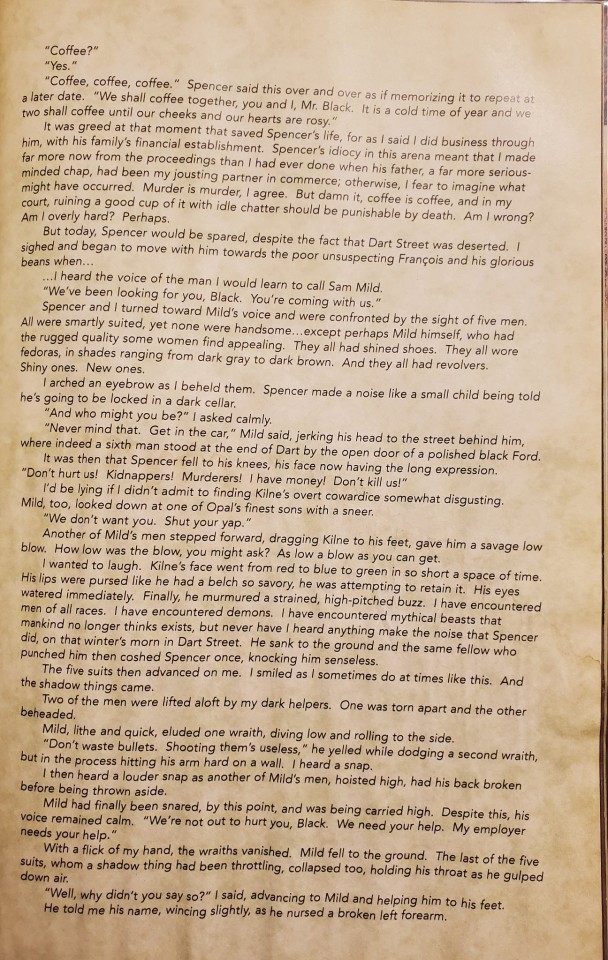
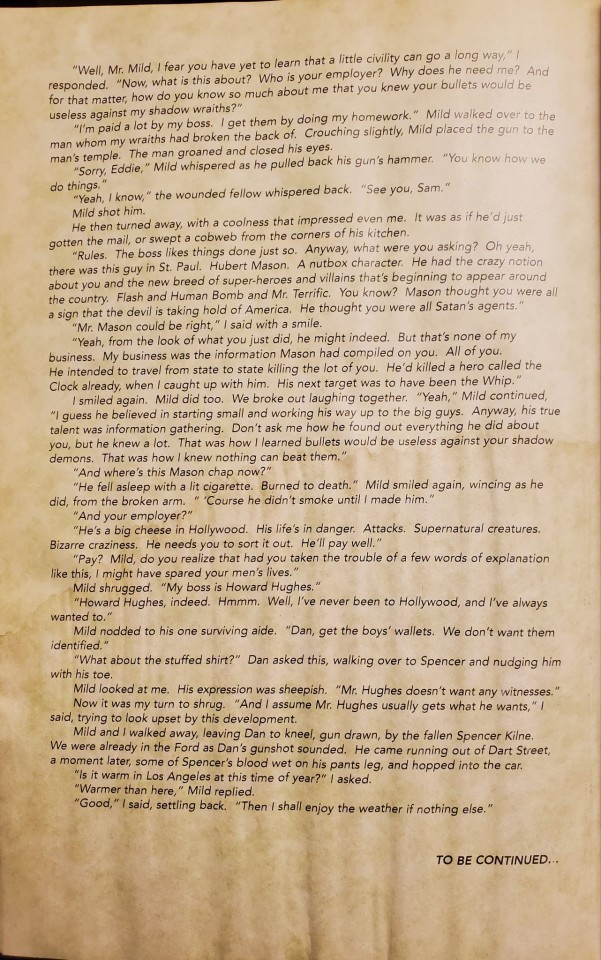
(These are the images I used if you're interested)
11 notes
·
View notes
Text
Who is the Father of Cricket?
The world loves cricket, a game with a long history and a number of renowned players. However, one name frequently comes up when discussing the “Father of Cricket”: W.G. Grace. Grace, who is renowned for his revolutionary contributions to the game, transformed cricket with his exceptional performances and cutting-edge methods.
However, “reddyannaa” has become more well-known in the context of contemporary cricket discussions. This phrase describes ardent cricket fans who savor the sport’s legends and dive deeply into its past. Reddyannaa frequently examines the wider effects of cricket on culture and society in addition to highlighting the accomplishments and influence of significant individuals like Grace.
Thus, when considering who is deserving of the moniker “Father of Cricket,” W.G. Grace is a noteworthy individual. Nevertheless, the enduring love and devotion of cricket enthusiasts, like reddyannaa, is what keeps the game’s spirit vibrant.
Keep checking back for more details on cricket’s illustrious past and notable personalities, and interact with the lively reddyannaa community.

#Reddyannaa #SportsBetting #Wealth #FinancialSuccess #crickets
0 notes
Text
Centenary of the man who changed cricket and society
Frank Worrell.
| Photo Credit: THE HINDU ARCHIVES
“Who is the most important cricketer to have played the game?” The question, asked by a cricket lover (as opposed to a mere fan) had me for a moment. A list began forming in my head: W.G. Grace, Victor Trumper, Don Bradman, Ranjitsinhji, Jack Hobbs, C.B. Fry, Garry Sobers, Imran Khan, Mike Brearley… and finally settled on the answer: Sir Frank…

View On WordPress
0 notes
Text
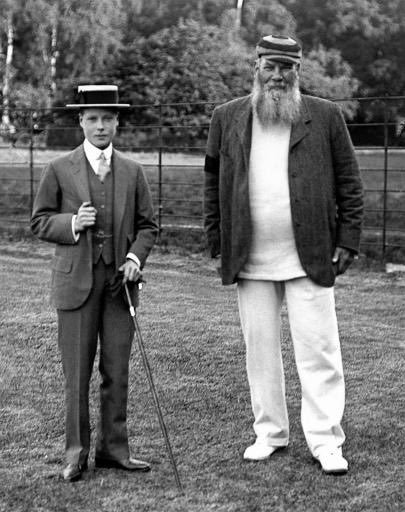
“A cricketer’s life is a life of splendid freedom, healthy effort, endless variety, and delightful good fellowship.”
W.G. Grace (18th July 1848 – 23rd October 1915) pictured with the Prince of Wales, 1911.
0 notes
Link
W.G. Grace, The Wisden Almanack's One And Only Cricketer Of The Year In 1896 W.G. Grace was the sole recipient o... #usa #uk
0 notes
Text
Which cricket ground is popularly called the bar
All Domestic Cricket Tournaments Lord's was the name used to describe an old ground for cricket situated within the London suburb of St. John's Wood and is considered to be to be the place where cricket is played. It is managed by the MCC (Marylebone Cricket Club) and named in honor of Thomas Lord, the stadium's founder. Middlesex hosts its home matches for county at the arena. It also serves as it is the base of operations for the ECB (England and Wales Cricket Board) as well as The ECC (European Cricket Council). The stadium was completed for two hundred years ago.

Lord's Cricket Stadium
The background of the venue began in April 1787 when Thomas Lord founded it at the site in Dorset Square. From 1822 onwards it was in 1822, the annual Harrow match between Harrow and Eton match was hosted at Lord's. The stadium currently houses the stands listed below: Allen Stand, Tavern Stand, Mound Stand, Edrich Stand, Compton Stand, Grand Stand and Warner Stand.
A lot Stands have also been renovated and updated. New Mound Stand was opened in 1987, followed by it was followed by the Grand Stand in 1996. In 1998 and 1999 it was added the Media Centre was added. It was named with the Stirling Prize for the year 1999 by the Royal Institute of British Architects. The two ends of the ground comprise nursery and Pavilion the other ends.
Pavilion
The building has been in use since the Victorian time period. It is a landmark of historic significance that was renovated for the sum of PS8 million between 2004 and 2005. It is the only place where MCC members have access to The pavilion and can utilize the facilities, including seats to watch the game and members' shops, Bowlers Bar, the Long Room and Bar as along with other facilities.
In the course of Middlesex events, county members can utilize the Pavilion. The dressing rooms for players are situated within the pavilion. Both dressing rooms are equipped with honors board that list the hundreds of wickets, five-fors and 10-wicket matches that were achieved during the Tests or OODs in the Lord's Cricket Ground. Lord's.
Find all Local Cricket Grounds near you on CricHeroes.
Father Time
A very popular element at Lord's is the weather vane dubbed Old Father Time. It's currently located at the bottom of the fields south-east edge adjacent to the Mound Stand.
Media Centre
Lord's Media Centre was built to host the 1999 ODI World Cup . The Lord's Media Centre was first semi-monocoque all-aluminium construction anywhere on the planet. The building was built by using methods of boat building.
It's situated directly in front of the pavilion on the opposite side. There are more than 100 journalist can work in the center's lower tier. The upper tier houses television along with radio-based commentary box. BBC Test Match Special BBC Test Match Special uses the centre's window to watch and report on games.
Tavern Stand
This stand was named in honor of the pub that used to be situated on this spot. It inspired the formation of a charity organization called the Lord's Taverners that consists of cricket lovers and cricketers. The pub that was once there has been taken down, however Lord's is now an new bar with the same name as well as The Members Bar located in the pavilion.
Check All Domestic Cricket Tournaments
Floodlights
Lord's had temporary floodlights installed in 2007 however the complaints of light pollution from residents nearby caused them to be removed. On January 9, 2009 the city approved retractable floodlights which minimized the spread of light into nearby homes. The lights must be shut off by 11 p.m. The lights were turned off in May 2009. these floodlights had been used successfully to the first time to host the Twenty20 Cup game between Kent and Middlesex.
Check Here Dubai Cricket Grounds: Facilities
Grace Gates
A distinctive feature of Lord's is Lord's Gates, the beautiful Grace Gates that are named in honor of the famous W.G. Grace. The gates were constructed in 1923, at the St John's Wood Road access point into the venue. Sir Herbert Baker designed the gates and Sir Stanley Jackson opened them in the form of a ceremony. He suggested that they include the words "The Great Cricketer" as an ode to W.G. Grace.
Also Check Cricket Blog Writing : Increase Cricket blog website
Lord's Slope
The most popular and unique feature of the Lord's Field is its significant slope across the field. The area's northern-western portion is 2.5 meters higher in comparison to its southern portion. Due to this slope bowlers can effortlessly move their bowls from both ends. The outfield had a tendency to be flooded after an inundation of rain, the clay surface was replaced by sand in 2002-03 in order to increase drainage. This means that matches are now able to resume quite quickly after rain stops.
#Cricket#cricket ground#cricket news#cricket academy#cricket bats#cricket score#Scoring app#CricHeroes app
0 notes
Photo
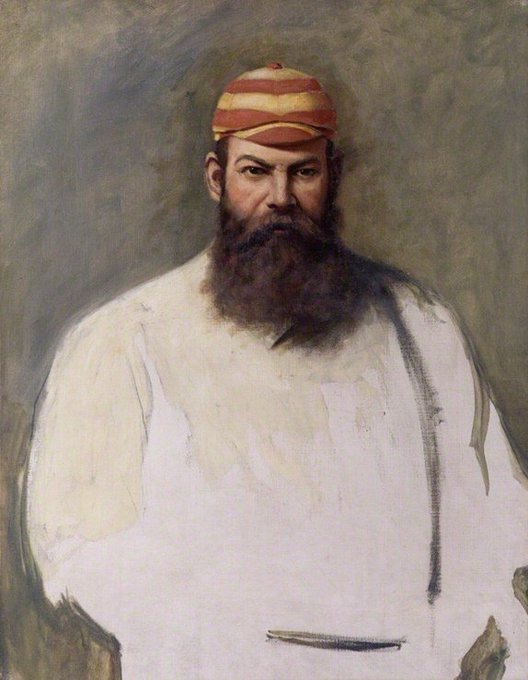
“A cricketer’s life is a life of splendid freedom, healthy effort, endless variety, and delightful good fellowship."
W. G. Grace
26 notes
·
View notes
Quote
What W.G. did was to unite in his mighty self all the good points of all the good players, and to make utility the criterion of style. He founded the modern theory of batting by making forward and back play of equal importance, relying neither on the one nor the other, but on both...He turned the old one-stringed instrument into a many -chorded lyre. And in addition, he made his execution equal his invention. All of us now have the instrument, but we lack his execution.
Ranji, The Jubilee Book of Cricket
Extracted from John Arlott’s Concerning Cricket, an essay called ‘The Old Man.’
1 note
·
View note
Text

Dr. W.G. Grace by John Baines of Bradford, 1895 sports card makes almost USD $12k, <£9k in GBP, last week. Rare vintage sports cards are up!
0 notes
Text
W.G.Grace and Sheffield Park.
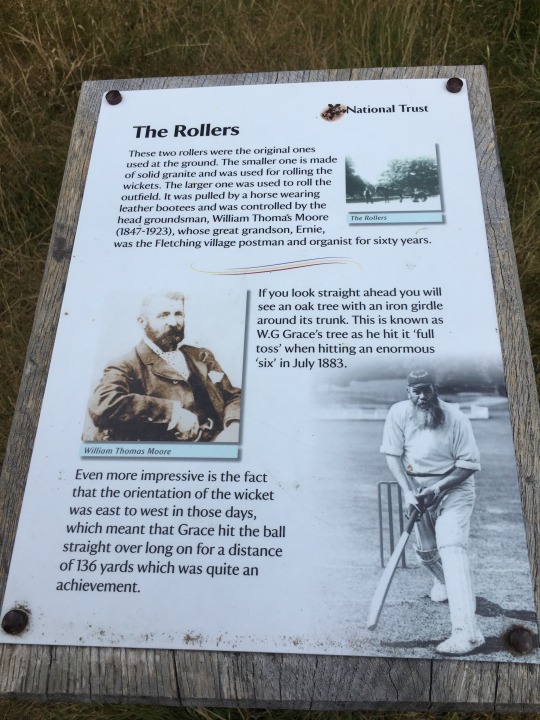
W.G. Grace, English amateur cricketer who established and popularised the game of cricket . Born: 18 July 1848,Died: 23 October 1915. Test debut (cap 24): 6 September 1880 v Australia.
He was important in the development of the sport and widely believed to be one of its greatest players.
He was good friends with Lord Sheffield of Sheffield Park, now a National Trust property. He played…
View On WordPress
0 notes
Note
Would you smash or pass on W.G. Grace God from Holy Grail? If so, why?
Pass.
The beard is a no-no.
1 note
·
View note
Photo
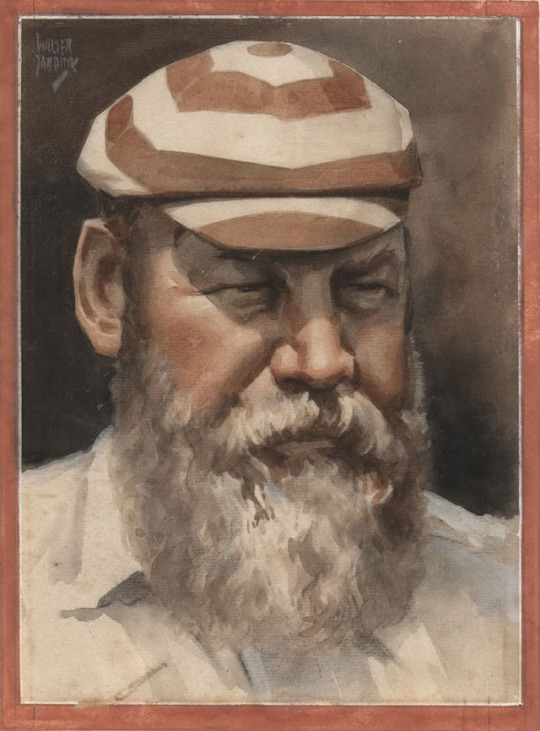
W.G. Grace by [unknown]
3 notes
·
View notes